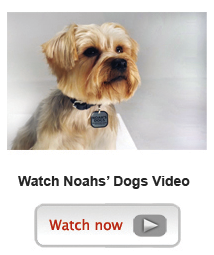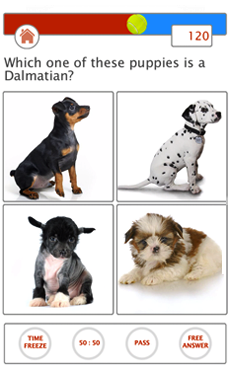Dog walkers
| As a dog owner it is your responsibility to ensure your dog is not left for long periods without exercise. Exercise will have an important impact on your dog’s behaviour. If you cannot provide the exercise he / she needs you should consider employing a Dog Walker.
WHY USE A DOG WALKER
Consider if you have the time and energy every day to give your dog the quality exercise he/she needs. Consider if you will be leaving your dog alone for long periods - perhaps to go to work.
If your dog is left alone for long periods, particularly without getting enough exercise or mental stimulation, he/she can become anxious, unhappy and destructive. Boredom can result in unwanted behaviours including excessive barking, chewing, jumping, nipping etc. These behaviours are often the fault of owner, if they are not providing enough exercise. Do not blame your dog.
Depending on the dog, dogs should not really be left for more than 4 or 5 hours at the most. They are pack animals and get lonely.
If your schedule does not allow you to provide for your dog you may need to hire a professional. Before getting a dog, consider if you can employ the services of a professional if necessary.
Hiring a Dog Walker can give you the peace of mind that you have someone dependable to care for your dog when you can’t and it can also be a great way for your dog to socialise with other dogs.
FINDING AND CHOOSING A DOG WALKER
Friends and even family member are not always the best options when looking for someone to walk your dog. They will be responsible for the safety of your dog and may not be experienced or dependable. When spending money on the services of a professional you should have the peace of mind knowing your dog is in good hands.
It is as important for you to choose a reputable Dog Walker as it is to choose a reputable child carer, and in an unregulated industry anyone can take on canine clients. It is up to you to choose well and make sure your Dog Walker is insured and responsible. Remember your dog cannot tell you what he/she has experienced on his walks, so it is your duty to screen potential Walkers on his behalf. Inexperienced dog Walkers can even create the behavior problems you are seeking to address.
You can find professional dog Walkers advertised in local newspapers, on vets’ noticeboards and online. You can find registered Pet sitters at National Association of Registered Petsitters http://www.dogsit.com/. Ask friends, family, neighbors, your vet or trainer, local shelter, groomers and fellow dog owners for recommendations - and then check them out.
WHAT TO CHECK FOR
Research your options well in advance. Meet and interview Dog Walkers in your area to ensure they are a good match for your dog.
Come well-prepared with a list of questions - refer to checklist below (from insurance and references).
A good Dog Walker will offer you a free consultation where they will meet with you and your dog to discuss your needs. You will be under no obligation to use them. Many good Dog Walkers will also invite you to accompany them on a walk so you can see how they manage the dogs. You should always try to observe the Walker in action. If they refuse to let you see them in operation you may wish to look elsewhere. They should not have anything to hide.
Do not worry about seeming rude during the interview process; ask all the questions you need to. If they are genuine they will understand you are simply concerned about the welfare of your dog and that you are right to be cautious. Your dog is a member of the family.
During the interview process, watch carefully how your dog and the Walker interact.
When you do find someone you are comfortable with, make sure you book your dog’s place well in advance! Good Dog Walkers can get booked up.
Consider and discuss with the Walker what your options would be if the Walker was on holiday or fully booked. Some Walkers may work with other dog Walkers and you may wish to meet and interview them too.
When hiring a Walker, you may want to give them a trial run for the first few weeks. This will allow you to check if the dog and the Walker are suited to each other.
Insurance and references;
Ask for references.
Check your Walker is CRB checked as it is likely you will need to give them keys - and they will have access to your home.
Check your Walker and any other staff they may have, are insured. Ask to see the certificates. Specialist insurance should cover liability, care, custody, and control as well as fire damage, lost keys, and other negligence claims.
Some dog Walkers may also have bonding or insurance which will cover items that might be broken due his or her negligence, or items that may come up missing.
Qualifications;
Check if your Walker has any animal care qualifications.
Your Walkers should at least have completed a first aid course.
Emergencies;
Check what your Walker’s procedure for emergencies is - what would they do if your dog was lost or injured? Are they a qualified first aider?
Ensure your Walker also has contact numbers for your friends or family who they may need to contact in an emergency if they cannot contact you.
If possible check if a dog in their care has ever been injured or lost.
Who is walking your dog;
Check who exactly will be walking your dog. Some Walkers will work with or employ other Dog Walkers, so the person walking your dog may not be the same person you met initially. Ask to meet any other employees or professionals who will be walking your dog, and ensure you also vet and interview them. It can be a good idea to employ a Walker who employs or works with other Walkers in event of your Walker being on holiday or sick etc. Check other employees are covered for insurance etc. too.
On the walk;
Check how long your dog will actually be walked for - particularly if he is being transported.
Check how many dogs each Walker takes at a time. Generally one person should not walk more than 4 dogs in one go. If your Walker walks a pack, be sure to check how many dogs are in it. A large group of dogs can be difficult to control - so your Walker should have solid experience if they are doing this. You may want to consider if your dog would be better suited being walked alone or as part of a pair. Consider the size of other dogs being walked, if you have a small dog for example it may be better for your dog to be walked in a group of dogs of a similar size.
If your dog will be off-lead consider if you are confident he/she will return to the Walker. Let your Walker know if there are any particular calls or signals you use for recall.
Check your Walker adheres to all bylaws and cleans up after dogs.
Consider unexpected visits when the Walker is with your dog. This will allow you to see for yourself how the Walker is managing your dog.
Training;
Check what training techniques or tools your Walker employs. It is important to choose a dog Walker whose approach you agree with. Walkers should only use humane methods and equipment. Reward based training and positive methods are generally considered most effective.
Consider how your Walker would handle unwanted behaviors, like jumping, or pulling on the leash. Would they follow up with training techniques and requests you have specified? If your dog is aggressive or reactive on walks, ask about their experience with this behaviour and question how they would handle it. Ask your Walker how they would handle being approached by an aggressive dog and how they would handle an attack or fight.
Transportation;
Dogs must be transported in safe, well-ventilated vehicles to avoid injury and overheating. They should be safely and securely restrained.
If the dogs are transported in a van, the van should be properly adapted and the dogs should be safely and securely crated. The van should be well-ventilated. Ask to see in the back of the van so you can check.
If your dog is being transported consider how much time your dog is actually being walked vs being driven to the place.
Your dog;
Your dog should wear an identification tag and be micro-chipped.
Ensure that your dog Walker has emergency contact information for you and for the dog’s vet - and an emergency contact should you be unavailable.
Your dog Walker should ask to see your dog’s vaccination certificates.
Some dog Walkers may not take un-neutered dogs or puppies under 6 months if they walk a pack.
You should educate your dog Walker about the personality, issues and needs of your dog. The Walker should be informed of any behavioral problems.
If your dog Walker is going to be feeding your dog, inform them of the meal schedule and measurements. Likewise if you expect the dog Walker to give medications, make sure they know the time and dosage.
|
- There are no comments yet








